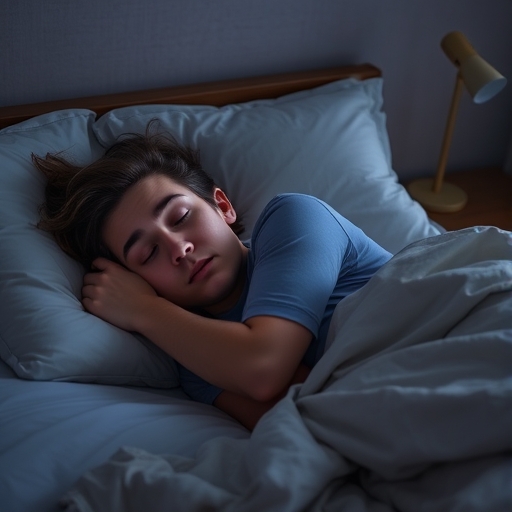How Much Sleep Should College Students Get?
Sleep is a vital component of overall health and well-being, especially for college students who are often juggling academic responsibilities, social activities, and personal challenges. Understanding the importance of sleep and how much rest is necessary can significantly enhance a student’s performance and quality of life. In this article, we will explore how much sleep college students should get, why it matters, and tips for achieving better sleep.
The Sleep Needs of College Students
Recommended Sleep Duration
According to the National Sleep Foundation, young adults aged 18-25 should aim for 7-9 hours of sleep per night. However, many college students fall short of this recommendation due to various factors including:
- Academic pressures
- Social activities
- Part-time jobs
- Poor time management
- Cognitive Function: Sleep is key for memory consolidation, critical thinking, and problem-solving skills.
- Emotional Regulation: Adequate sleep helps in managing stress, anxiety, and mood swings.
- Physical Health: Sleep supports immune function and overall physical health, reducing the risk of illness.
- Academic Performance: Studies have shown that well-rested students tend to perform better academically.
- Increased fatigue: This can lead to decreased motivation and energy levels.
- Impaired cognitive abilities: Difficulty focusing, learning, and remembering information.
- Mood disturbances: Heightened irritability and emotional instability.
- Increased risk of mental health issues: Such as depression and anxiety.
- Physical health problems: Including obesity, diabetes, and cardiovascular diseases.
- Decreased academic performance: Lower grades and a higher chance of dropping out.
- Academic workload: Assignments, exams, and deadlines can create pressure.
- Financial concerns: Tuition, student loans, and living expenses can weigh heavily on students.
- Social pressures: Fitting in, making friends, and maintaining relationships can be overwhelming.
- Caffeine consumption: Excessive intake can lead to insomnia.
- Late-night screen time: The blue light emitted from devices can interfere with the body’s natural sleep-wake cycle.
- Irregular sleep schedules: Frequently changing sleep patterns can disrupt the body’s internal clock.
- Noise: Dorms or apartments in busy areas may have disruptive sounds.
- Light: Excessive light can inhibit melatonin production, making it harder to fall asleep.
- Comfort: An uncomfortable mattress or bedding can lead to restless nights.
- Go to bed and wake up at the same time every day: This helps regulate your body’s internal clock.
- Avoid naps longer than 30 minutes: If you need to nap, do so earlier in the day.
- Limit noise and light: Consider blackout curtains and white noise machines.
- Keep the room cool: A cooler environment can promote better sleep.
- Invest in a comfortable mattress and pillows: Comfort is key for quality sleep.
- Avoid caffeine and nicotine: Especially in the hours leading up to bedtime.
- Be mindful of alcohol consumption: While it may initially help you fall asleep, it can disrupt sleep later in the night.
- Wind down before bed: Engage in calming activities such as reading, meditating, or taking a warm bath.
- Limit screen time: Try to avoid screens at least an hour before bed to reduce blue light exposure.
- Persistent fatigue
- Difficulty concentrating
- Mood swings or irritability
- Increased forgetfulness
- Get out of bed and do a quiet activity until you feel sleepy.
- Avoid looking at screens, as it may further disrupt your sleep cycle.
- Practice relaxation techniques such as deep breathing or meditation.
Sleep Duration Comparison Table
| Age Group | Recommended Sleep Duration |
|---|---|
| Teenagers (14-17) | 8-10 hours |
| Young Adults (18-25) | 7-9 hours |
| Adults (26-64) | 7-9 hours |
| Older Adults (65+) | 7-8 hours |
Why Sleep Matters for College Students
Sleep plays a crucial role in several areas relevant to college students:
The Consequences of Sleep Deprivation
Short-Term Effects
When students do not get enough sleep, they may experience:
Long-Term Effects
Chronic sleep deprivation can lead to more serious consequences, including:
Factors Affecting Sleep Quality for College Students
Stress and Anxiety
College life can be stressful, leading to anxiety that disrupts sleep. Factors contributing to this include:
Lifestyle Choices
Certain lifestyle choices can impact sleep quality:
Environment
The sleep environment plays a significant role in sleep quality:
Tips for Better Sleep
Establish a Consistent Sleep Schedule
Create a Sleep-Inducing Environment
Limit Stimulants
Develop a Relaxing Bedtime Routine
Seek Help if Needed
If sleep issues persist, it may be beneficial to consult a healthcare provider. They can help identify any underlying issues or disorders that may be affecting your sleep.
Frequently Asked Questions (FAQ)
How much sleep do college students actually get?
Many college students report getting significantly less sleep than the recommended 7-9 hours. Studies suggest that the average sleep duration for college students is around 6-7 hours per night.
What are some signs I’m not getting enough sleep?
Signs of sleep deprivation include:
Is napping beneficial for college students?
Napping can be beneficial if done correctly. Short naps (20-30 minutes) can help recharge your energy without interfering with nighttime sleep.
Can sleep supplements help?
Some students consider sleep supplements like melatonin. While they can be effective, it’s essential to consult a healthcare provider before starting any supplement.
What should I do if I can’t fall asleep?
If you find it hard to fall asleep, try these tips:
Conclusion
Sleep is an essential aspect of a college student’s life, influencing academic performance, mental health, and overall well-being. By understanding how much sleep is necessary and implementing strategies to improve sleep quality, students can enhance their college experience. Prioritizing rest is not just about getting through classes; it’s about fostering a healthier, more balanced lifestyle that supports success and happiness during this transformative period.





